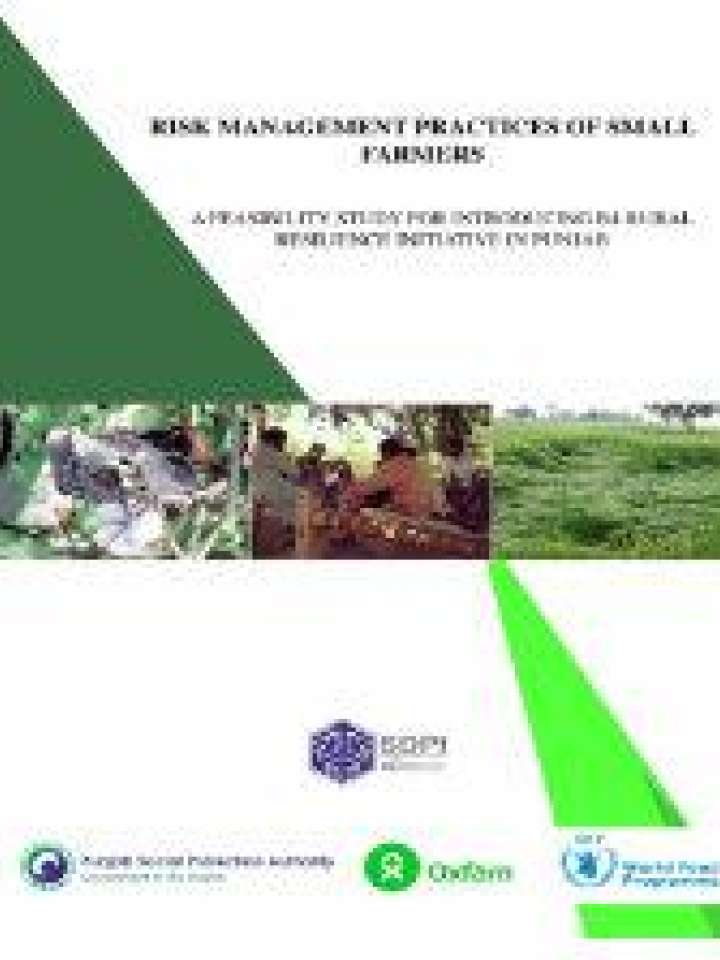Risk management practices for small farmers: a feasibility study for introducing R4 rural resilience initiative in Punjab
This study assesses the viability of integrated risk management approaches for enhancing the resilience of small farmers in Punjab, Pakistan. It looked at the relevance of WFP-Oxfam‘s global R4 Rural Resilience Initiative in the context of study areas and found the approach to be relevant. In particular, strategies relating to risk reduction and risk transfer, if implemented correctly, can significantly augment small farmers‘ capacities to withstand shocks. The study takes into consideration the various risks confronting smallholder farming systems and ways in which farmers cope with these risks.
A mixed research methodology using secondary and primary data was used for the study which was carried out in agriculture production areas of districts Muzaffargarh and Rahim Yar Khan. The selection of districts was guided by the level of exposure to risks and concentration of smallholder subsistence farmers. Evidence was collected on current set of risks facing the small farmers and how they were coping with those risks. This study also identifies stakeholders critical for designing and implementing R4 interventions for efficient risk transfer and mitigation. Scoping for insurance based risk management and policy narratives on rural resilience through integrated risk management was also carried out.
In summary, the feasibility study had the following specific objectives:
- Mapping of risks, their affects and the coping mechanisms.
- Stakeholder identification
- Identifying complementarities between R4 design and the existing risk management ecosystem in the Punjab.
- Recommendations for most feasible R4 entry points.
Explore further

